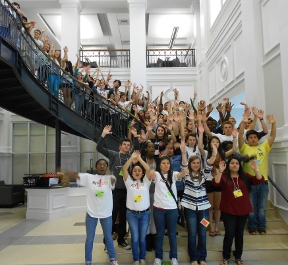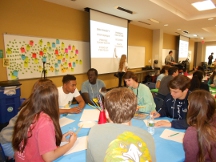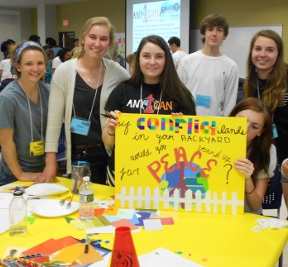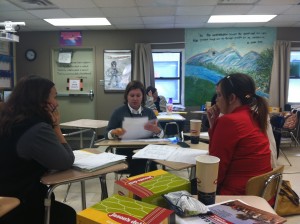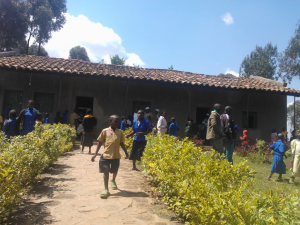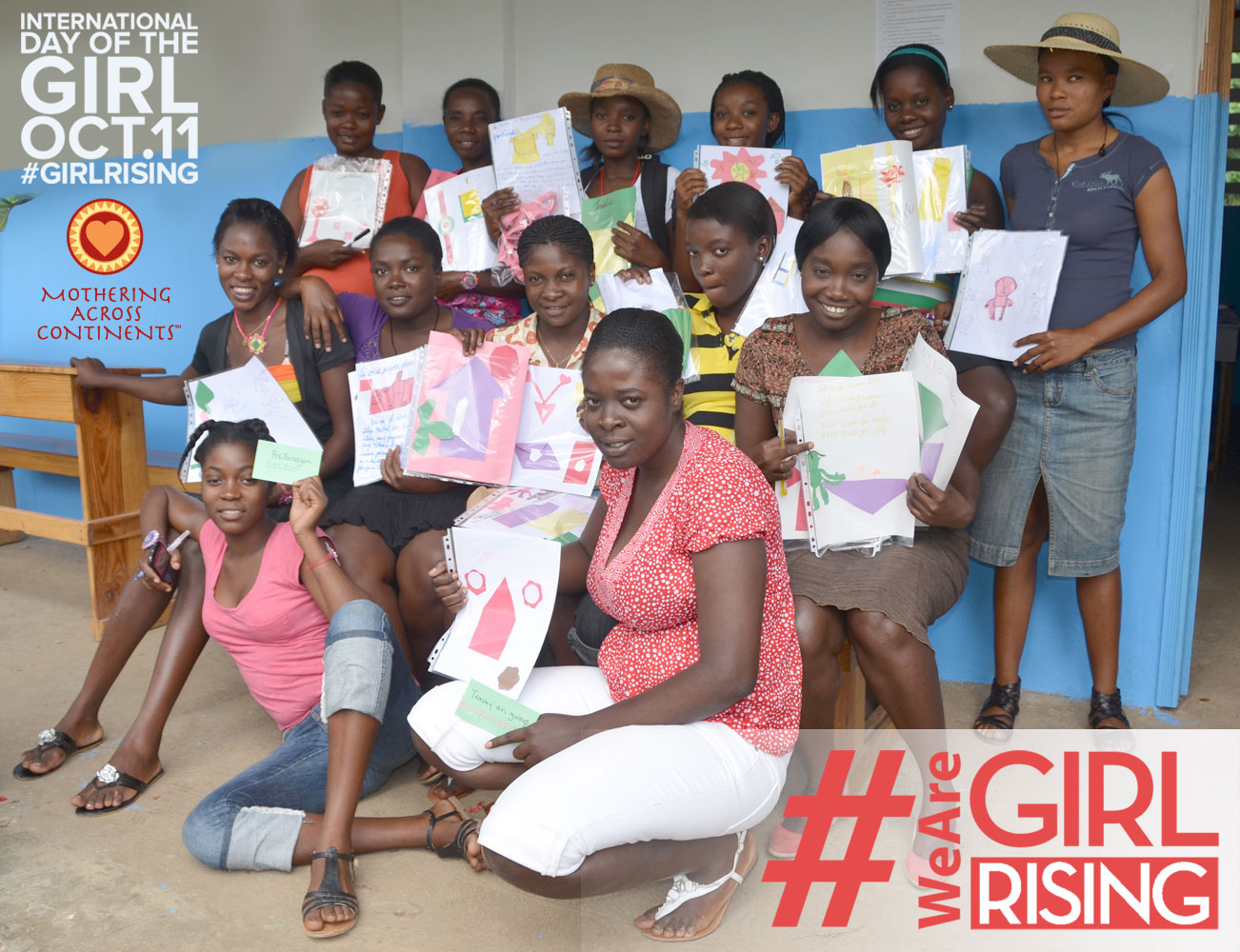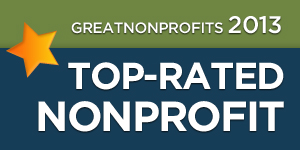Patricia Shafer, July 20, 2015
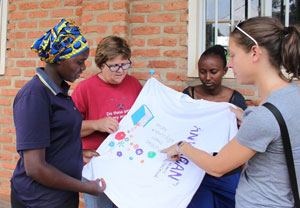 “From Knowledge Comes Beauty” reads a hand-painted T-shirt, a gift to a high school merit scholar in Rwanda, originally painted by a student in the US . . . Why? Did the US student who painted the T-shirt believe deep down inside that there is a connection between knowledge and beauty? Does the recipient, Daphrose, now feel a sense of connection with a young person thousands of miles away that she may never meet?
“From Knowledge Comes Beauty” reads a hand-painted T-shirt, a gift to a high school merit scholar in Rwanda, originally painted by a student in the US . . . Why? Did the US student who painted the T-shirt believe deep down inside that there is a connection between knowledge and beauty? Does the recipient, Daphrose, now feel a sense of connection with a young person thousands of miles away that she may never meet?
 We will likely never know the true answers. However, when Mothering Across Continents special projects coordinator Elizabeth Peacock packed her luggage and more than 20 hand-painted T-shirts for a trip to Rwanda, she wondered what magic might be created. T-shirts, she reminded us, have become a global medium of expression, especially for youth. Likewise – hearts, peace signs, flowers and books are images that translate well across many cultures. The languages of love, compassion and quality education are bridge-builders.
We will likely never know the true answers. However, when Mothering Across Continents special projects coordinator Elizabeth Peacock packed her luggage and more than 20 hand-painted T-shirts for a trip to Rwanda, she wondered what magic might be created. T-shirts, she reminded us, have become a global medium of expression, especially for youth. Likewise – hearts, peace signs, flowers and books are images that translate well across many cultures. The languages of love, compassion and quality education are bridge-builders.
Yet, Elizabeth’s bearing of T-shirt gifts had an even bigger purpose. Three years ago, she led an enormous T-shirt painting exercise across middle and high schools in Charlotte, North Carolina. After workshops learning about seven global issues (poverty, education/illiteracy, hunger, water/infrastructure, environment, conflict/peace, and intolerance), students were invited to paint a white T-shirt in a way that expressed what he or she had learned about what can be done to address one issue. Schools and students raised money to participate. The funds were designated to help build a school in South Sudan. The school, Nyarweng Primary, is operating today.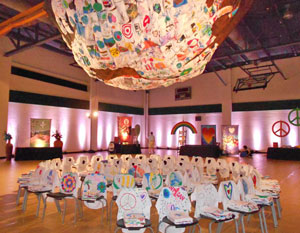
Then what? What becomes of the T-shirts? First, they toured Charlotte, including an installation of 2,000 T-shirts at the annual Sensoria Arts Festival at Central Piedmont Community College. The exhibit was called “Any1Can” – a theme carried on each of the T-shirts and reminder that Any1Can Promote Education, Any1Can Teach Tolerance, Any1Can Stop Hunger, Any1Can . . .
Some have been set aside, almost museum-like, to be untouched, and only replicated through social enterprise products available in the Mothering Across Continents store. Special gifts have been made of others – the group that Elizabeth just took to students in Rwanda, for example. And another group have been looked at, not as T-shirts to wear per se, but as accidental canvases to be upcycled into purses, bags and backpacks – a potential social enterprise to help fund more education projects.
But I digress . . . I’ve started to share the material and potential marketing impact of these T-shirts, which is easy to do, because we’re often told that T-shirts are a powerful and affordable marketing opportunity. Practically speaking, that may be true. But speaking with purpose, what matters more is that students in the US were introduced to the idea of global issues and the idea that Any1Can make a difference; they were asked to react through art; and their thoughts are being conveyed as gifts half-way around the world. Coming full-circle: “From Knowledge Comes Beauty.”

